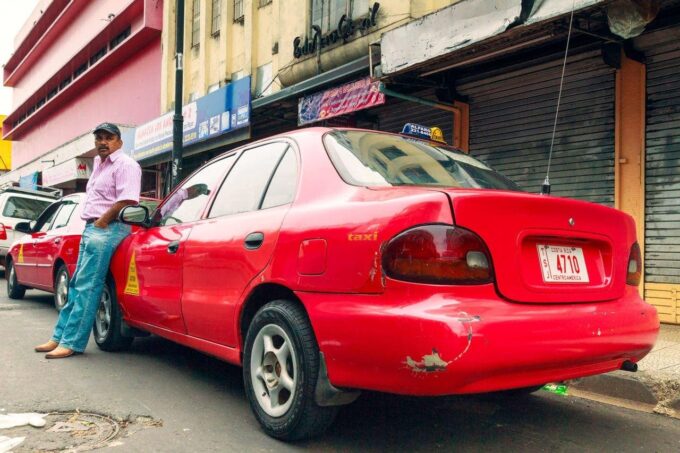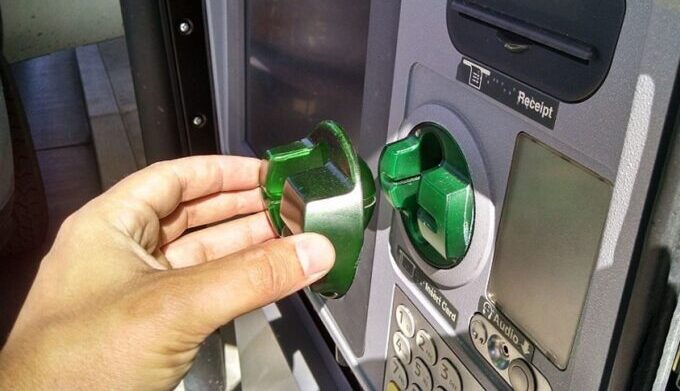The thought of being a victim of a sophisticated tourist scam while taking in the sights and sounds of a foreign country is enough to make your heart sink. Travelers mistakenly believe that tourist areas are the safest places, but they still lose their expensive possessions and money. Unfortunately, scams targeting tourists are common, even in the most picturesque locations.
Before starting your journey, you must know what they are and how to avoid them.
In this article, we’ll discuss some common tourist scams and how to avoid them. By being aware of potential scams, you can safeguard yourself and your money, leaving your travel experiences with only pleasant recollections.
The overpriced taxi ride

Source: expertvagabond.com
You’ve just exited the plane and are anxious to check into your hotel. Taxi drivers who take advantage of tourists’ jet lag and inexperience with local rates by charging outrageously high fares should be avoided at all costs. This scam is common in many international travel destinations. If you are new to town and do not know the currency, the taxi driver will overcharge you for a short ride.
Having prior knowledge of the amenities at your destination is always a plus. It is also a good idea to use dedicated cab apps or services as the rates there will be predetermined and free from any scams. What you can do here is check us-reviews to find reviews and experiences regarding all travel services. Thus, you can obtain more information about taxis, metros, and trains at your destination.
How to avoid it?
- Do your research before you get there to avoid falling for this scam.
- Find out what other people have paid for taxi rides, or use a reliable ridesharing app to avoid getting ripped off.
- Before getting into the cab, decide how much money you want to spend and negotiate a price with the driver.
- Before getting into the taxi, make sure the meter is working.
Bump and grab scam

Source: myaurochs.com
The “bump and grab” scam is a variation of pickpocketing frequently occurring in crowded transportation hubs like train, bus, and subway stations. Individual or group scammers hit tourists purposefully so that the bump causes the tourist to become distracted, at which point the scammer steals wallets or other valuables from pockets or bags. Train thieves often escape with stolen goods as the doors close.
How to Avoid it?
To avoid falling for this con, consider the following:
- Your wallet and valuables are easy targets for pickpockets, so never keep them in your front or back pockets.
- Use a discreet money belt or zippered cross-body bag to store valuables. These options hinder thieves from accessing your belongings.
- Keep cash and essential documents in a different place. If you get pickpocketed, having copies of important documents and extra money can help you get by.
- Be careful if someone bumps into you or acts strangely.
- Displaying large amounts of money or expensive jewelry can draw attention.
If you want to keep an eye on your money while traveling, check out our article and learn why you need a Bitcoin wallet and how it can help safeguard your money while traveling.
Tuk-Tuk scam
Tuk-tuk rides through tourist districts can be fun in Southeast Asian countries like Thailand. Tuk-tuk drivers offer what appear to be free or highly low-priced day tours. While this may seem like a great chance to see famous landmarks and temples, the drivers often have hidden agendas. They’ll try to steer you toward local businesses to make a buck. Like the timeshare pitch, shop owners give long sales pitches, so you will waste your day listening to the tuk-tuk driver’s agenda.
How to avoid it?
- Know your destination and research your route and landmarks. Avoid unnecessary detours by clearly communicating your destinations to the tuk-tuk driver.
- Avoid commission-based stops and ensure transparency by negotiating a fare with the tuk-tuk driver before the trip.
Friendly local
The perpetrator of this scam will typically initiate contact by inviting the victim out for a drink at a local bar. A casual night out can quickly turn into a financial nightmare when the bill for a few drinks totals hundreds of euros, even though the couple only had a few drinks. This trick catches the victims off guard, and they end up in a financial bind.
How to avoid it?
- A new acquaintance who seems too eager to help or forward is a warning sign.
- You can drink with a new friend in a comfortable place and without consuming too much.
The Fake Police Officer

Source: abc7.com
Unfortunately, impersonating law enforcement officers is a highly successful tourist scam in many parts of the world. Scammers may pretend to be law enforcement officers by showing off fake ID badges and asking for personal documents, including passports and wallets under the pretense of conducting checks for counterfeit currency or other crimes like illicit drugs. They threaten to have you taken into custody if you refuse to pay money.
How to avoid it?
- You must know that legitimate law enforcement officers will use proper procedures and might not ask for cash.
- Ask for identification and check with the police station to ensure the officer is legit.
- Tell them you left your passport in the hotel safe and need their assistance getting to your room. Just leave if they refuse to cooperate.
Spilled drink scam
This scam is frequent and funny; someone spills something on you as you go about your routine. The scammers act remorsefully by offering to clean up their mess. Confused and preoccupied, you fail to notice that they are trying to steal your wallet from under you.
“Bird poo” and the “poo shoe” variations are common in many destinations. Scammers spray animal feces on your shoe when you’re not looking. They offer to “help” you find a cleaner after discovering the mess, often charging exorbitant fees. Instead, they may pickpocket you while you’re cleaning your shoe.
How to avoid it?
- If this happens, ignore them and deal with the problem to avoid falling for their trick.
- Refusing assistance is your best bet. You should instead clean yourself up at a restroom.
- Protecting yourself from cons requires maintaining vigilance and focusing on the situation.
Closed attractions

Source: thetravel.com
You’ve set aside the day to see a famous landmark, but when you get there, you discover it’s been mysteriously shut down. Swindlers may say the landmark is closed for the day or undergoing maintenance to redirect you to another less impressive but more expensive location.
A common trick is that an English-speaking local approaches unsuspecting tourists to tell them the attraction is closed due to a religious ceremony or holiday. After showing you goodwill, they’ll take you to another interest or shop, where you’ll be pressured to buy or charge exorbitant fees.
How to avoid it?
- Check opening times online or with your hotel’s front desk to avoid disappointment.
- Don’t feel obligated to take their advice.
Counterfeit currency
Counterfeit money is a severe issue in some travel destinations and is frequent in restaurants and taxis. The employee will say your bill is false when you hand it over after the meal/ride. When you make a purchase, con artists might try to give you counterfeit bills as a change.
How to avoid it?
- Learn how to recognize the local currency’s security features, such as watermarks and holograms, to avoid getting ripped off.
- Always double-check your cash and report anything suspicious to the police.
- Convert large bills to smaller ones at your hotel or a bank.
ATM scams

Source: thenewsminute.com
ATM scams are a problem in well-known tourist destinations. Scammers often offer tourist assistance near ATMs. They may pose as friendly locals or bank employees to help withdraw but mess with the machine or swap your card. Hidden card skimmers steal card data in other cases. Vacationers must be vigilant to avoid these scams.
How to avoid it?
- Use ATMs in secure, well-lit areas, preferably inside bank branches.
- Protecting your PIN while entering it and being aware of anyone nearby are essential precautions.
- Check the ATM for any odd devices or tampering evidence.
- Never give your PIN or accept assistance from a stranger.
- Consider using a mobile payment app or prepaid travel card to reduce risk.
Conclusion
It is essential to know the common scams targeted at tourists and how to avoid them when traveling. Following the advice above, you can avoid being a victim of these scams and have a pleasant and trouble-free trip. Keep an eye out; do not let these con artists ruin your trip.







